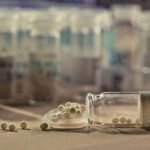Female Infertility
By Pamela Frank, ND
Naturopathic doctors offer a viable treatment option for most women with fertility issues because we offer a safe, thorough, multifaceted approach at a reasonable cost. Comprehensive case taking is vital to arrive at the correct naturopathic and Chinese medicine diagnoses and thereby choose the correct acupuncture points, find the right homeopathic remedy, and prescribe appropriate nutritional and herbal interventions.
Asking the Right Questions
As well as asking about the usual mental, emotional, and physical characteristics of the patient, a detailed reproductive history must be taken. The following is a list of questions to ask the patient:
- How long have you been trying to conceive?
- Do you know if and when you ovulate? If the answer is no, then instruct the patient on how to monitor her own ovulation with basal body temperature, cervical mucous, and cervical quality.
- Has conventional medicine ovulation monitoring been done (i.e., repeated bloodwork and ultrasounds to monitor the growth and development of the egg follicle and the ebb and flow of hormones)? The following should be tested: FSH, LH, estradiol (cycle days 4-14), progesterone (cycle days 5-14 and 20), prolactin (more than one), TSH, Ca125, testosterone, free testosterone, fasting blood sugar, and DHEAs. Was anything abnormal on the ovulation monitoring tests? Get a copy of any tests the patient has had done. Depending on who did the testing it may or may not be sufficiently thorough and the results may have been loosely interpreted.
- Who has treated the patient thus far—only her GP? A reproductive endocrinologist? An OB/GYN? A fertility specialist?
- Does the patient have a history of fibroids, endometriosis, abnormal PAP smear, ovarian cysts, PCOS, abortion, miscarriage, d & c or d & e, ectopic pregnancy, hirsutism, dysmenorrhea, irregular menstruation, acne, difficulty losing weight, hypoglycemia, insulin resistance, increased fasting insulin, elevated DHEAs, STDs (especially gonorrhea or chlamydia), hypothyroidism, or diabetes?
- Ask detailed questions about menstruation: are her cycles regular? How many days from day 1 of her flow to her next first day of flow (many women don’t know exactly how to count their cycles)? Is the flow heavy? If so, for how many days? Is it very light? What is the color of the flow? What is the consistency of the flow (i.e., are there clots, what size, few or many)? Does she have pain with her periods? If so, have her rate it on a scale of 1-10. Has she been on the birth control pill? Depo-Provera? IUD? Other forms of contraception? Any adverse reactions to any form of contraception? Does she have any symptoms of PMS? What symptoms specifically (i.e., breast swelling and tenderness, irritability, water retention, headaches, emotionally labile)?
- Has the patient been on any fertility drugs such as Clomid, Puregon, Suprefact, Lupron, Repronex, or Pergonal?
Possible Naturopathic Explanations for Female Infertility
Once some of the more evident causes of infertility such as endometriosis and fibroids have been ruled out, infertility may be explained by the following:
- Implantation problems—This is a significant cause of fertility problems and cannot be adequately assessed diagnostically. An endometrial biopsy can be performed but rarely is done. Ultrasound can measure endometrial thickness but not receptivity. Excess estrogen impairs implantation and progesterone increases receptivity of the uterine lining to implantation.
- Stress—This is also a significant factor in unexplained infertility and can be difficult for the patient to overcome. Adrenal gland hyperstimulation leads to excessive cortisol production, depleting crucial progesterone stores. Failure to conceive in itself can be a stressor for the patient so that tensions escalate the longer the infertility lasts, perpetuating the fertility issues.
- Poor timing—Many patients are not properly educated as to how to determine when ovulation occurs and when to time intercourse.
- Hostile vaginal environment—What is often referred to as a hostile vaginal environment is more often a lack of or poor-quality cervical mucous. Cervical mucous acts as the gatekeeper to the uterus. At ovulation its consistency changes and becomes more conducive to transport of sperm into the uterus.
- Undiagnosed PCOS—A diagnosis of polycystic ovarian syndrome does not require multiple cysts to be visualized on ultrasound. Many women will have a cluster of symptoms of PCOS without actually have cysts on the ovaries. Look for hirsutism, irregular menstruation, acne (chest, back, face), difficulty losing weight or easily gaining weight, symptoms of hypoglycemia, insulin resistance or high fasting insulin levels, and elevated DHEAs.
- Excess xenoestrogens—Xenoestrogens from pollution, herbicides, pesticides, plastics, conventional meat and dairy products, and contraceptives can block estrogen receptors interfering with normal estrogen function. Estradiol levels may be normal, but estrogen function may be inhibited.
Naturopathic Treatment Solutions
From a Chinese medicine perspective, clots in menstrual flow are a sign of stagnation of blood in the uterus. From a Western medicine perspective we also know that clots form where blood doesn’t flow freely or where there is an open wound or sore. We can infer from this that there may be poor circulation of the endometrium or inflammation or irritation of the endometrial lining in women with a tendency to clot formation. In these women, I will use antiinflammatory herbs such as curcumin, hops, and rosemary to reduce clotting in the uterus. Hydrotherapy and castor oil packs can be used to increase circulation to the reproductive organs and within the uterus.
Diet should focus on low-glycemic-load foods to keep insulin levels low, alkalinizing foods and lots of organic vegetables and fruit, and moderate protein, fats, and low-glycemic-load carbs. Gluten allergy has been associated with recurrent miscarriage; therefore, food allergy testing may be warranted.
Lifestyle changes include reduced hours and workload; stress reduction techniques like yoga, breathing exercises, meditation, and tai chi; and daily exercise. Chinese medicine encourages a brisk one-hour walk every day for women with fertility issues to get the qi circulating and get it out of the head and into the lower warmer.
Vitex can be used to balance estrogen and progesterone levels, normalize cycles, and lower prolactin.
Indole-3-carbinol and calcium-d-glucarate can be used to lower excess estrogen, and enable detoxification of xenoestrogens.
There is abundant research supporting the use of acupuncture both independent of and in conjunction with conventional fertility treatments.
Be aware that any naturopathic intervention can either enhance or interfere with conventional medical treatment. Know which medications your patient is on, and the pharmacology of the medication, and alter your treatment plan as needed so as not to conflict with IVF or IUI treatments.
Case Study
This patient is a 41-year-old female who has been trying to conceive for 12 months. Ovulation monitoring shows normal ovulation at mid-cycle and an adequate uterine lining thickness, elevated prolactin levels on cycle days 6, 9, 13, and 20, but normal levels on days 4 and 11. She recalls undergoing excessively high levels of stress at the time that may have influenced the prolactin results. Her husband’s sperm count, motility, morphology, and DNA fragmentation tests were all normal. She had been tracking ovulation for a year with consistent ovulation in the middle of a 28-day cycle. She had a history of irregular menstruation at menarche until conventional medicine put her on the birth control pill to regulate her cycles. At that time DHEAs were elevated on bloodwork. After discontinuing the Pill 13 years previously, her cycles were again erratic until naturopathic treatment with homeopathic Sepia. Physical exam revealed excessive hair growth around her areolas. I recommended weekly acupuncture sessions for six weeks, Vitex—1 tablespoon per day first thing in the morning, low-glycemic-load diet, regular exercise, calcium-d-glucarate 500 mg per day, and 1 hops/rosemary combination tablet per day. She conceived three months later at which time all but a multivitamin and essential fatty acid supplement were discontinued. She gave birth to a healthy baby boy.
 Pamela Frank, ND, is a licensed naturopathic doctor and clinic director at Forces of Nature in Toronto. She has a passion for fertility medicine and leads a team of health professionals all of whom focus on perinatal care. A well-respected expert, she has appeared on such television programs as CITY-TV News, Wellness for Life, and Medical Intelligence.
Pamela Frank, ND, is a licensed naturopathic doctor and clinic director at Forces of Nature in Toronto. She has a passion for fertility medicine and leads a team of health professionals all of whom focus on perinatal care. A well-respected expert, she has appeared on such television programs as CITY-TV News, Wellness for Life, and Medical Intelligence.










